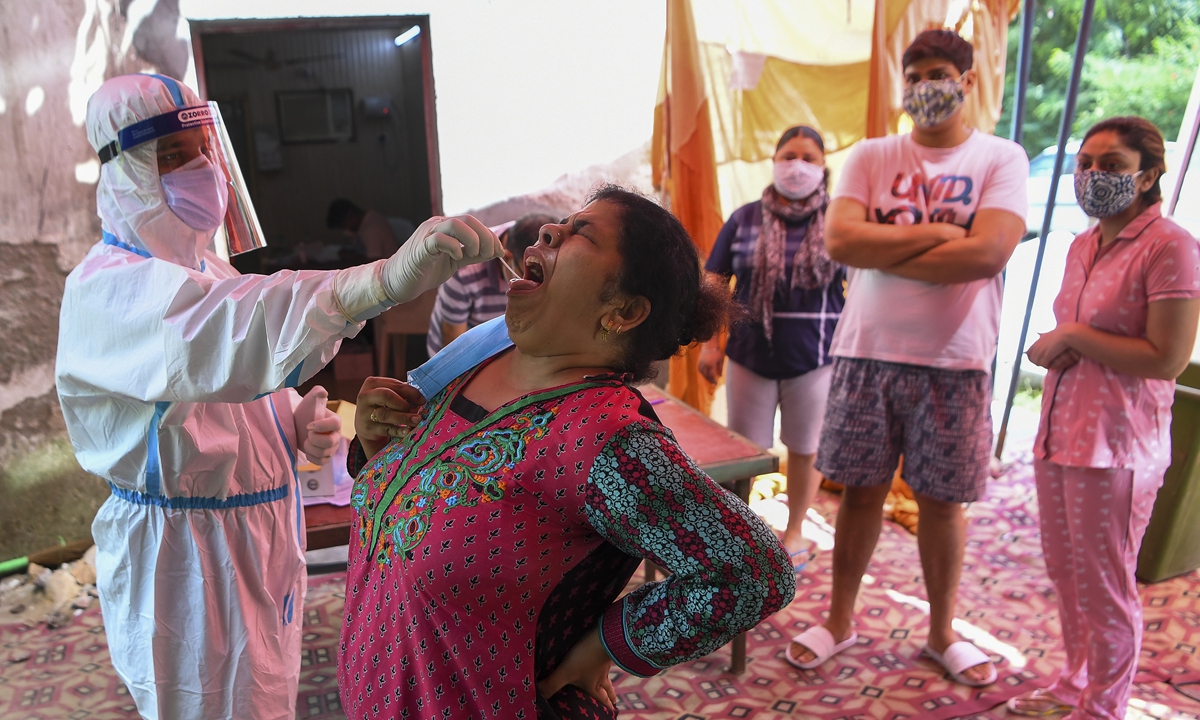WHO wants 120m rapid virus tests for poorer states despite concerns
Source: AFP Published: 2020/9/29 16:38:40

A medical worker collects a swab sample from a woman for a RT-PCR COVID-19 test in Ghaziabad, India on Sunday. India reported about 6 million coronavirus infections with about 95,000 deaths as of Sunday. Photo: AFP
Some 120 million rapid tests for COVID-19 will be made available to poorer countries at $5 each, the World Health Organization (WHO) announced Monday - if it can find the money.The WHO said the $600 million scheme would enable low- and middle-income countries to close the dramatic gap in testing for the novel coronavirus, which has now killed more than a million people since first being recorded in December.
The quick tests, to be distributed across 133 countries over the next six months, are not as reliable as the regular PCR nasal swab tests, but are far faster, cheaper and easier to carry out.
"We have an agreement, we have seed funding and now we need the full amount of funds to buy these tests," WHO Director-General Tedros Adhanom Ghebreyesus said.
Last week, the WHO issued the first emergency-use listing for a quality, antigen-based rapid diagnostic test (RDT), with others expected to follow.
"A substantial proportion of these rapid tests - 120 million - will be made available to low- and middle-income countries," said Tedros.
"These tests provide reliable results in approximately 15 to 30 minutes, rather than hours or days, at a lower price, with less sophisticated equipment."
"This will enable the expansion of testing, particularly in hard-to-reach areas that do not have lab facilities or enough trained health workers to carry out PCR tests."
The Global Fund to Fight AIDS, Tuberculosis and Malaria, which is coconvening the WHO-led pooled global search for COVID-19 diagnostics, is putting in $50 million from its COVID-19 response pot.
Global Fund executive director Peter Sands said the RDTs were no silver bullet but were a hugely valuable complement to PCR tests.
"Although they are a bit less accurate, they're much faster, cheaper and don't require a lab," said Sands.
Sands, said that currently, high-income countries were conducting 292 tests per day per 100,000 people; upper-middle-income countries 77; lower-middle-income countries, 61; and low-income countries, 14.
AFP
Posted in: CROSS-BORDERS